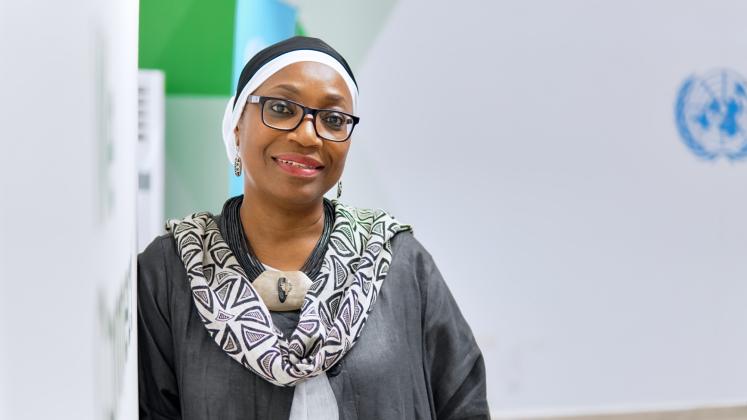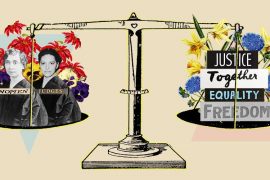“Women are central to climate adaptation strategies because they are the custodians of their communities’ knowledge, livelihoods, and resilience. To exclude them is to miss the heart of the solution.” — Dr. Fatima Denton.
Dr. Fatima Denton’s vision for women in climate action is as transformative as it is urgent. For her, empowering women is not merely a matter of inclusion but a strategic necessity to address one of humanity’s most pressing challenges. Through her groundbreaking work, Dr. Denton highlights the undeniable role women play in climate adaptation and resilience, emphasizing that their leadership is vital for sustainable development and social justice.
Her Vision for Women in Climate Action
At the core of Dr. Denton’s vision lies the belief that women must transition from being passive participants to active leaders in the global response to climate change. She sees women not only as frontline responders—handling the immediate effects of climate disasters—but as architects of long-term solutions that merge traditional knowledge with scientific innovation. Dr. Denton’s work focuses on ensuring that women have the tools, resources, and decision-making power to drive climate policies that are equitable, inclusive, and impactful.
Understanding Climate Action and Women’s Role
Climate action encompasses efforts to mitigate greenhouse gas emissions, adapt to changing environmental conditions, and build resilience in communities. Women, particularly in developing regions like Africa, are disproportionately affected by climate change due to their roles in agriculture, water management, and caregiving. Despite their vulnerability, women are also uniquely positioned to contribute to climate solutions because of their intimate knowledge of local ecosystems and their ability to lead community-level adaptations.
Dr. Denton’s vision aligns with this reality, advocating for gender-responsive strategies that harness women’s expertise while addressing the systemic barriers that limit their participation. By prioritizing women in climate governance, she aims to create policies that are not only effective but also equitable, recognizing the diverse ways in which climate change impacts different demographics.
Achievements of Women in Climate Action
Women have already made significant strides in the field of climate action. From grassroots movements to international policy negotiations, they have demonstrated leadership and innovation. For instance, women-led organizations across Africa are driving reforestation projects, promoting renewable energy adoption, and implementing sustainable farming techniques. On the global stage, female negotiators and policymakers have played key roles in shaping landmark agreements such as the Paris Climate Accord.
Dr. Denton’s work amplifies these achievements, shedding light on the potential of women to lead transformative climate solutions. Through her contributions to the Intergovernmental Panel on Climate Change (IPCC) and her leadership at the United Nations University Institute for Natural Resources in Africa (UNU-INRA), she has highlighted women’s successes while advocating for systemic changes to expand their influence.
Potentials and Opportunities for Women
The climate sector offers vast opportunities for women to drive innovation, entrepreneurship, and policy reform. From renewable energy technologies to sustainable agriculture and water management, there is enormous potential for women to take the lead in crafting solutions that are locally relevant and globally impactful.
However, systemic barriers such as limited access to education, resources, and decision-making platforms continue to hinder women’s progress. Dr. Denton’s vision is to dismantle these barriers by promoting gender-sensitive policies, facilitating capacity-building programs, and fostering collaboration between women leaders and other stakeholders. Her work at UNU-INRA has led to initiatives that equip women farmers with modern agricultural techniques, empower women-led startups in the green economy, and integrate gender equity into resource management strategies.
Closing the Gender Gap in Climate Governance
Dr. Denton’s approach to closing the gender gap is both practical and visionary. She emphasizes the importance of data-driven policymaking, advocating for gender-disaggregated data to understand how climate change impacts women differently. By tailoring solutions to address these unique challenges, she ensures that policies are not only inclusive but also effective.
Moreover, her advocacy for integrating traditional knowledge with modern science positions women as indispensable actors in climate resilience. She often highlights how women’s lived experiences, particularly in rural communities, offer insights that are critical for crafting adaptation strategies. By championing these perspectives, Dr. Denton bridges the gap between grassroots knowledge and global policy frameworks.
Inspiring a New Generation
Dr. Denton’s vision extends beyond the present, inspiring a new generation of women leaders in climate action. Her call for a “just transition” resonates deeply, advocating for a shift to sustainable economies that prioritize equity and inclusion. She recognizes that addressing climate change requires a collective effort, and empowering women is a key step toward building resilient communities and a sustainable future.
As the world faces escalating climate challenges, Dr. Fatima Denton’s leadership offers both a blueprint and a beacon of hope. Her commitment to gender equity and climate justice reminds us that women’s voices, knowledge, and leadership are not optional in this fight—they are essential.





Comments are closed.